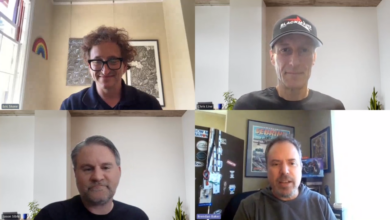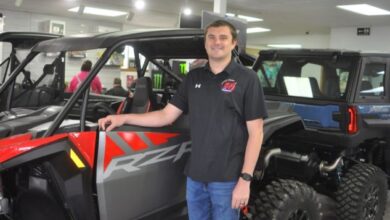Ducati focuses on its retailing practices – November 13, 2006
Consecutive years of solid growth has allowed Ducati North America (DNA) to begin looking beyond the typical OEM quantity issues — sales and inventory levels — and focus on quality challenges, namely the consumers’ retailing experience.
The North American branch of the Italian manufacturer has started several programs that it hopes will result in the identification of minimum retailing standards for its network of approximately 175 dealers. To identify what those minimum standards could be, DNA has started a mystery shopping program, a European brand dealer 20 group with the RPM Group and an exclusive store program that aims to create a unique retail environment.
All of those retail and best practice programs have occurred after two years of solid growth (DNA anticipates a 23 percent increase in sales this year), meaning compared to three years ago, inventory and new unit sales concerns have diminished.
“I knew that at the point that started, I could have a conversation with (dealers) about them,” said DNA CEO Michael Lock. “Until that point, the conversation was all about us.”
To turn the focus on the dealer, Lock hired Pied Piper Management Co. to run the mystery shopping program, where dealerships are graded on how their employees interact with mystery shoppers. Lock calls the program an independent way of assessing retail performance that will show dealers “what does and doesn’t work and why it does and doesn’t work.”
The program, which dealers can pay for with co-op funds, was explained in August at DNA’s dealer show in Salt Lake City and is voluntary this year. Lock said the voluntary nature of the program may change next year, noting he’s considering making it mandatory and linking the program’s results to dealers’ retail bonuses.
“I want the dealers to see we’re not about wielding a big stick,” Lock said. “What we’re about is helping them to help themselves to become more profitable.”
Another program aimed at accomplishing that is the European brand dealer 20 group, which is starting this month with a pilot program of 20 Ducati dealers.
“I’ve always been impressed by the effect (the 20 groups) have on dealers’ ability to financially run their business,” Lock said.
However, Lock believed the existing 20 groups “were set up and designed for dealers with mass market, multibrand shops” and not for the European brand manufacturer. So he sent RPM Group President Sam Dantzler “a challenge,” Lock said, “which was you come up with a dealer support and advisory group that specifically addresses a European high-end manufacturer” and he’ll ask dealers to participate.
Dantzler and the RPM Group have responded, and the first such 20 group was set to meet in the first week in November. Lock wants to see the initial group, which includes Ducati dealers that also have other European-brand franchises, meet two or three times before a second 20 group is started.
“If we have two groups up and running by year end, I would feel that’s a success,” Lock said of the program, which is being partially funded by DNA.
Another dealer program that DNA is funding is the exclusive store arrangement, which Lock introduced in Salt Lake City and has received more interest than he imagined.
The program helps dealers redesign their existing facility with DNA providing architectural design and support, signage, fixtures and custom graphics. In return for funding the redesign, DNA requires dealers to dedicate a large enough space to accommodate its motorcycles, accessories and apparel. How large that space needs to be is judged on a case-by-case basis, Lock said. “We don’t want to squash (the dealers) into one set of rules,” he said.
The redesigned area also must have its own distinct entrance, meaning DNA often is creating a store within a store look, similar to what is occurring in other retail industries.
Dealers who go through the redesign process also must participate in DNA stocking programs for three years and agree not to change the mix of brands they have without prior approval from DNA. “We don’t ask them to get rid of any brands,” Lock said.
After the three-year period, the dealership is allowed to keep all the fixtures, signage and other redesign elements.
Lock said the biggest twist in the program, compared to other OEMs, is Ducati’s goal of creating diverse retail environments, not cookie-cutter type designs.
“We’ve taken a fresh look at this,” he said. “We understand that there has to be a consistency of brand wherever you go, whether you go to San Francisco or Houston or Berlin or Sydney. However, we don’t want them to all look the same.”




